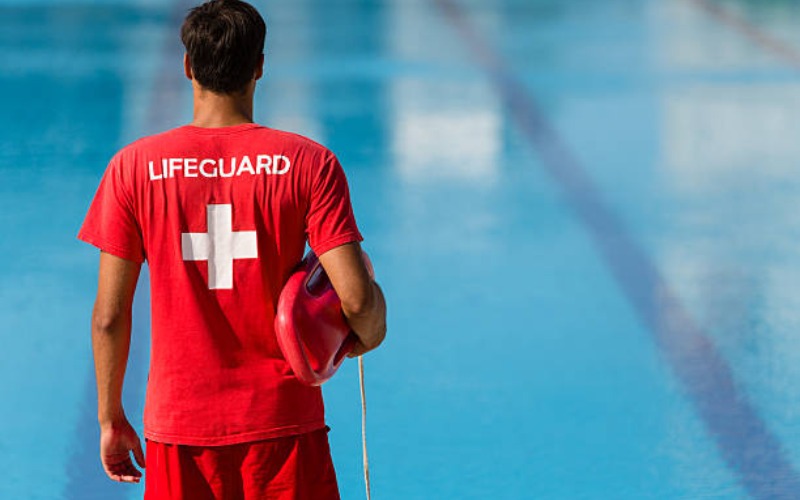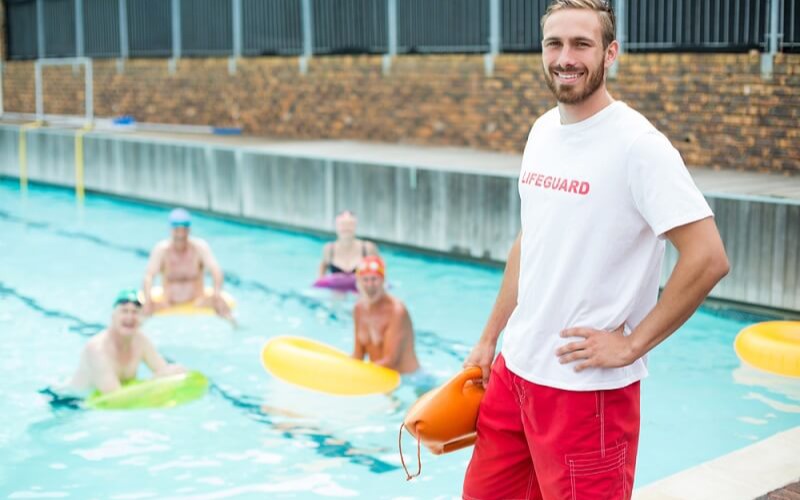The future of pool lifeguard jobs is filled with both opportunity and challenge. As the demand for lifeguards increases, the need for qualified and experienced professionals to fill these positions is rising as well. With increases in pool safety regulations and technology, pool lifeguard jobs are more competitive than ever and require an even greater level of skill and vigilance. While there is an abundance of opportunity for those interested in pursuing a career as a lifeguard
it also comes with a unique set of challenges that must be addressed in order to ensure successful job placement and job satisfaction.
Introduction To The Future Of Pool Lifeguard Jobs
The future of pool lifeguard jobs looks bright. With the increasing popularity of swimming, more and more people are using pools for leisure and exercise, leading to a rise in demand for pool lifeguards. Pool lifeguards are responsible for the safety of patrons in and around the pool, including monitoring the water, enforcing safety rules, and intervening in any hazardous situations.
In order to ensure the highest levels of safety, pool lifeguards must be trained in CPR and first aid, as well as have an understanding of swimming pool safety regulations. As the demand for pool lifeguards increases, so does the need for more training and certifications. Pool lifeguards must also stay up to date on current safety standards and regulations, and be able to respond to emergencies quickly and efficiently. With their invaluable service, pool lifeguards are a key part of the swimming pool experience and will continue to be in high demand in the future.

The Growth Of Pool Lifeguard Jobs In The Coming Years
Pool lifeguard jobs are becoming increasingly more accessible as the demand for lifeguards rises. Not only are more pools being built, but pool owners are beginning to realise the importance of having a lifeguard on duty to ensure the safety of swimmers. This is especially true in the wake of the recent spate of drownings in public pools. Consequently, the growth of pool lifeguard jobs is expected to continue in the coming years.
Pool lifeguard jobs involve the responsibility of making sure all swimmers are following safety protocols, such as no running, no diving, and no horseplay. Pool lifeguards are also expected to be able to recognise signs of distress and act quickly in the event of an emergency. In addition to ensuring the safety of swimmers. Pool lifeguards are also responsible for maintaining upkeep of the pool and ensuring the area is clean and free from debris.
With the rise in pool construction, more pool lifeguard jobs are becoming available. This is good news for aspiring lifeguards, as they can find jobs in both private and public pools. Moreover, the pay for pool lifeguards is competitive and the job can provide a great opportunity to gain valuable experience.
Understanding The Importance Of Pool Lifeguard Jobs
Pool lifeguard jobs are an important part of safety and recreation. Pool lifeguards are responsible for the safety of swimmers and pool visitors by enforcing pool regulations, providing assistance when needed, and responding to emergency situations. Lifeguards monitor the pool area, ensuring that everyone is following the rules and regulations, and that any potential hazards are addressed. They are also responsible for providing emergency assistance to swimmers in distress. As well as performing CPR and other lifesaving techniques.
Pool lifeguards must complete a rigorous training program and obtain certification from a recognised organisation. This certification validates that the lifeguard is qualified to perform duties such as rescue, first aid, and emergency medical care. Certification also ensures that the lifeguard has the knowledge and skills needed to properly supervise the pool and its patrons. Pool lifeguards must also complete regular training and refresher courses to stay current on the latest safety protocols.
Pool lifeguard jobs provide an important service. Not only do lifeguards ensure the safety of swimmers. They can also help to create an enjoyable atmosphere for pool visitors. Pool lifeguards are an important part of the pool community and their work should be valued and respected.
Pool lifeguard jobs are an important part of safety and recreation. They are responsible for the safety of swimmers and pool visitors by enforcing pool regulations, providing assistance when needed, and responding to emergency situations. Lifeguards monitor the pool area, ensuring that everyone is following the rules and regulations, and that any potential hazards are addressed.
The Importance Of Ongoing Training For Pool Lifeguards
The importance of ongoing training for pool lifeguards cannot be overstated. First and foremost, it is essential that lifeguards remain up-to-date on their knowledge and certifications. This allows them to ensure the safety of swimmers and patrons at all times.
Additionally, ongoing training helps lifeguards hone their skills and stay prepared for any potential emergency. It also helps them stay alert and ready to respond to any situation quickly and efficiently. Furthermore, an effective training program can identify potential hazards and create strategies to reduce the risk of accidents. Finally, ongoing training can help lifeguards develop and maintain positive relationships with swimmers and staff. This can help create a safe and enjoyable atmosphere for everyone.
The Benefits Of Professional Development For Pool Lifeguards
Professional development for pool lifeguards is beneficial for both the lifeguard and their employers. It helps lifeguards stay up to date with the latest safety procedures, first aid techniques, and other important skills, such as communication and customer service. By learning new skills, lifeguards can better protect swimmers, while also providing a higher level of customer service.
Professional development can also help lifeguards stay motivated and engaged in their job. It can provide a sense of accomplishment and reward when mastering a new skill or learning a new technique. Additionally, professional development can open up new opportunities for advancement and increased pay. Employers also benefit from professional development as it keeps lifeguards informed of current safety regulations and best practices. As well as helping to create a positive work environment that encourages employee growth.
Overall, professional development for pool lifeguards is a win-win for both the employee and the employer. It helps lifeguards stay up to date with the latest safety procedures. While also providing employers with a workforce that is highly trained, motivated, and engaged.
Conclusion
The Future of Pool Lifeguard Jobs presents both opportunities and challenges. As the number of pools increase, the demand for lifeguards will likely go up. With the advancement of technology, lifeguards can be more efficient and effective in their jobs. The rise of new technologies such as drones, cameras, and automated systems can help detect and respond to emergencies faster.
However, this technology also presents a challenge to lifeguards as it can replace their jobs if not managed well. Additionally, maintaining physical fitness and taking refresher courses are essential for lifeguards to remain employable. With the right skills and knowledge, lifeguards can have a rewarding career in the pool industry.

Sue Clifford is a Minnesota-based personal finance expert with more than 25 years of experience in the money management industry. A CFP(Certified Financial Planner) and an Accredited Financial Counselor, Clifford is a leader in the industry and a passionate advocate for financial literacy. She writes a finance blog on topics such as budgeting, debt management, retirement savings, investing and financial planning, drawing on her professional experience and personal experience in money management. With an accessibility and a commitment to financial literacy, Sue Clifford’s financial blog is sure to offer useful insight and advice for anyone looking to take control of their financial future.





